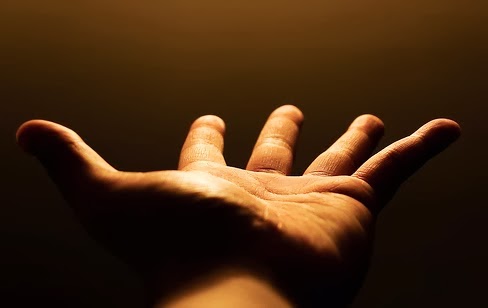But how?
When you are betrayed, how do you forgive?
When you are hurt by other's choices, how do you let go?
When you get kicked in the gut, perhaps sucker punched,
what do you do with that?
My natural human reaction is to get mad and then get even! There's something that feels good about holding onto a grudge, rehearsing and nursing the painful event. And then I find others who will rally to my point, confirming my suspicion that I was wronged.
Then the reality of the situation sinks in. When I don't forgive….
- I don't move forward. I'm stuck in a time warp to that moment.
- I make decisions based on what was done to me rather than what is best for me
- I don't sleep as well
- my stress level goes up
- I have conversations with the perpetrators rather than praying for them
There's a part of each of us that believes if we forgive then we lose something, we give up something. It might feel like letting the other get away with it. If we forgive, will justice be done? If we let them of the hook, will they learn their lesson?
Most of what I've learned about offering forgiveness can be seen in Joseph's story from Genesis 37-50, culminating in what a Seminary professor said was God's "50/20 vision:"
You intended to harm me, but God intended it for good to accomplish what is now being done, the saving of many lives.
 1. Truth. Forgiveness only happens in an atmosphere of truth. When we forgive it's not in these ways:
1. Truth. Forgiveness only happens in an atmosphere of truth. When we forgive it's not in these ways:- It's no big deal. Don't worry about it.
- Nevermind, it's already forgotten.
- I know you didn't mean it. Excusing behavior isn't forgiveness.
2. "But God." The only way I know to transcend the emotional pit of unforgiveness is to fly higher and get the bigger picture - God's picture. "But God" is the strongest, most life-transforming phrase in the Bible.
Having experienced a sucker punch, a betrayal, and walking beside those experiencing the same, my counsel has been to not wish harm to "the others" but to leave it to God. It's a form of the Gamaliel stance from Acts 5. God might work in this thing. If I get God's perspective then I can seek the benefit of His Kingdom. The other's motivation doesn't matter.
Looking at the people God used gives me pause. There was Jacob the scheming deceiver. Abraham was a liar and had an impatient character. David is referenced as the greatest King in Israel but carries the baggage of adultery and murder. Peter is viewed as a strong pillar in the new church but his pride nearly took him down. God used those people and they look a lot like me!
Where I struggle is not just "wishing no harm" but actually loving as Jesus calls me to: "Love your enemies and pray for those who persecute you." I'm still learning to work that out.
3. A Choice. Forgiveness is a decision not an emotion. I have learned over the years to offer forgiveness immediately, realizing that the sting will last longer. Forgiveness is a moment in time choice that has nothing to do with the painful flood of emotion that I feel. I can choose to forgive immediately, then work my way through the maze of emotion.
Forgiveness is a decision between me and my heart.
4. The Cross. Remembering the sacrifice of Jesus is the clincher for forgiveness. His forgiveness of me makes every other action against me pale in comparison.
 |
| Garden of Gethsemane, Jerusalem |
For if you forgive other people when they sin against you, your Heavenly Father will also forgive you. But if you do not forgive others their sins, your Father will not forgive your sins. (vv 14-15)These are difficult words. If I don't pass on the forgiveness I've received, that forgiveness is replaced by a different relationship. I don't think this is referring to my salvation. It is dealing with my experience of God's forgiveness and its effect on my relationships in life. Unforgiveness will sour in my soul and poison everything and everyone around me. It does put me in grave danger of losing that gift of salvation.
 Who do you need to forgive? What wrong has been done to you? What neglect, betrayal or indifference have you experienced? Let it go or it will rule and ruin you. A closed fist can't receive God's grace. An open hand is not only ready to receive but also to pass it on to others. What position will you take?
Who do you need to forgive? What wrong has been done to you? What neglect, betrayal or indifference have you experienced? Let it go or it will rule and ruin you. A closed fist can't receive God's grace. An open hand is not only ready to receive but also to pass it on to others. What position will you take?
No comments:
Post a Comment